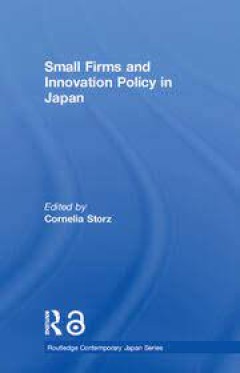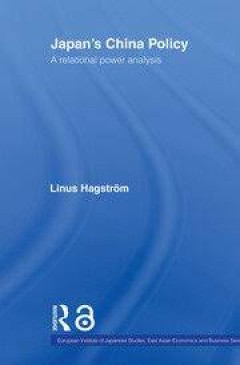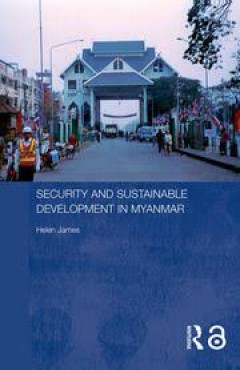Filter by

Energy, Wealth and Governance in the Caucasus and Central Asia Lessons not l…
Drawing upon recent progress in development economics and political science, the book provides fresh analysis of the Caucasus and Central Asia (CCA) countries transition to a market economy by tracing the impact of natural resource endowment. The book examines the synergies between energy-rich and energy-poor states and highlights the practical consequences of both well-managed and poorly-manag…
- Edition
- -
- ISBN/ISSN
- 9780203099803
- Collation
- -
- Series Title
- -
- Call Number
- -

Revolution, Reform and Regionalism in Southeast Asia Cambodia, Laos and Vietnam
Based on research carried out over the three decades, this book compares the post-war political economies of Cambodia, Laos and Vietnam in the context of their individual and collective impact on contemporary efforts at regional integration. The author highlights the different paths to reform taken by the three neighbours and the effect this has had on regional plans for economic development th…
- Edition
- -
- ISBN/ISSN
- 9780203099476
- Collation
- -
- Series Title
- -
- Call Number
- -

Ibn Al-Jazzar On Sexual Diseases
First published in 1997. This book is from the original Arabic text with an English translation, introduction and commentary of a critical edition of Zad al-musfir wa-qut al-hadir, Provisions for the Traveller and Nourishment for the Sedentary, book six.
- Edition
- -
- ISBN/ISSN
- 9780203038987
- Collation
- -
- Series Title
- -
- Call Number
- -

The Politics of China's Accession to the World Trade Organization The Dragon…
Grounded on a series of first-hand interviews with Chinese government officials, this book examines China’s accession to the World Trade Organization, providing an ‘inside’ look at Chinese WTO accession negotiations. Presenting a systematic political economy model in analyzing Beijing’s decision-making mechanisms, the book argues that China’s WTO policy making is a state-led, leadersh…
- Edition
- -
- ISBN/ISSN
- 9780203029411
- Collation
- -
- Series Title
- -
- Call Number
- -

Small Firms and Innovation Policy in Japan
This new book discusses the extent to which the Japanese economy encourages entrepreneurship and innovation. Although Japan has a strong reputation as an innovator, some people argue that this reputation is misplaced. Contrary to earlier expectations, the USA rather than Japan emerged as the leader in the biotech industries in the 1990s, and also many small firms in Japan supply only a few �…
- Edition
- -
- ISBN/ISSN
- 9780203027899
- Collation
- -
- Series Title
- -
- Call Number
- -

Japan's China Policy A Relational Power Analysis
Japan's China Policy understands Japan's foreign policy in terms of power - one of the most central concepts of political analysis. It contributes a fresh understanding to the subject by developing relational power as an analytical framework and by applying it to significant issues in Japan's China policy: the negotiations for a bilateral investment protection treaty and the disputed Pinnacle (…
- Edition
- -
- ISBN/ISSN
- 9780203023792
- Collation
- -
- Series Title
- -
- Call Number
- -

Order and Security in Southeast Asia Essays in Memory of Michael Leifer
Michael Leifer, who died in 2001, was one of the leading scholars of Southeast Asian international relations. He was hugely influential through his extensive writings and his contacts with people in government and business in the region. In this book, many of Leifer’s students, colleagues and friends come together to explore the key themes of his work on Southeast Asia, including the notio…
- Edition
- -
- ISBN/ISSN
- 9780203014813
- Collation
- -
- Series Title
- -
- Call Number
- -

Studies in Jaina History and Culture Disputes and Dialogues
The last ten years have seen interest in Jainism increasing, with this previously little-known Indian religion assuming a significant place in religious studies. Studies in Jaina History and Culture breaks new ground by investigating the doctrinal differences and debates amongst the Jains rather than presenting Jainism as a seamless whole whose doctrinal core has remained virtually unchanged…
- Edition
- -
- ISBN/ISSN
- 9780203008539
- Collation
- -
- Series Title
- -
- Call Number
- -

Security and Sustainable Development in Myanmar
Helen James considers security in Myanmar/Burma. She uses the ideas put forward in the United Nations Development Programme's 1994 report, of human, as opposed to state and security, going on to argue that freedom from want, and freedom from fear (of the regime) are in fact mutually supportive ideas, and that the security of the people and the security of the state are in fact in a symbiotic re…
- Edition
- -
- ISBN/ISSN
- 9780203001981
- Collation
- -
- Series Title
- -
- Call Number
- -
 Computer Science, Information & General Works
Computer Science, Information & General Works  Philosophy & Psychology
Philosophy & Psychology  Religion
Religion  Social Sciences
Social Sciences  Language
Language  Pure Science
Pure Science  Applied Sciences
Applied Sciences  Art & Recreation
Art & Recreation  Literature
Literature  History & Geography
History & Geography